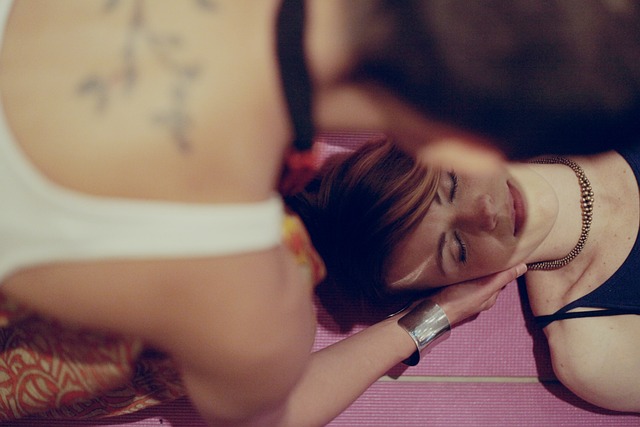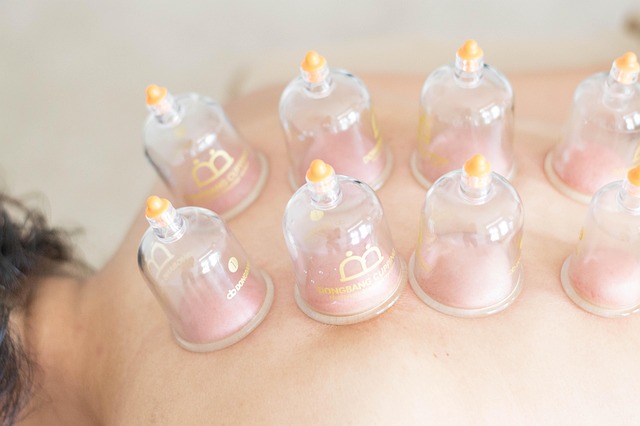Stress Reduction Therapy (SRT) offers a holistic approach to mental health through evidence-based techniques like mindfulness, cognitive reframing, and relaxation strategies. Yoga, movement, and mindfulness practices enhance physical and mental well-being by fostering present-moment awareness, reducing stress hormones, and rewiring negative thought patterns. CBT is an effective SRT method for managing anxiety and depression. Integrative Approaches combine conventional medicine with alternative practices to tailor solutions for holistic mental and physical well-being in a fast-paced world.
“Uncover the path to transformative mental and physical health with expert guidance on regenerative practices. In today’s fast-paced world, stress reduction therapy emerges as a powerful tool for unlocking mental resilience. This comprehensive article explores diverse approaches, from yoga and mindfulness to cognitive behavioral therapies, offering insights into integrating holistic wellness into your life. Discover how these innovative strategies can help you navigate challenges, cultivate present-moment awareness, and create a sustainable, resilient mindset.”
- Understanding Stress Reduction Therapy: Unlocking Mental Resilience
- The Physical Dimension: Yoga and Movement for Holistic Wellness
- Mindfulness Techniques: Cultivating Present-Moment Awareness
- Cognitive Behavioral Therapies: Rewiring Negative Thought Patterns
- Integrative Approaches: Customized Plans for Sustainable Health
Understanding Stress Reduction Therapy: Unlocking Mental Resilience

Stress Reduction Therapy is a powerful approach designed to empower individuals in managing and overcoming their mental health challenges. It focuses on helping people develop effective coping mechanisms, enhance resilience, and cultivate a deeper sense of well-being. Through various evidence-based techniques, this therapy provides tools to navigate life’s stressors, allowing individuals to unlock their innate mental fortitude.
The core of Stress Reduction Therapy involves teaching mindfulness practices, cognitive reframing, and relaxation strategies. By learning to recognize and manage stress responses, individuals can break free from negative thought patterns and reduce the impact of stressful events. This therapy encourages a holistic view of health, recognizing the deep connection between mental and physical well-being, ultimately fostering a balanced and resilient mind-body relationship.
The Physical Dimension: Yoga and Movement for Holistic Wellness

The Physical Dimension: Yoga and Movement for Holistic Wellness
Incorporating yoga and movement practices into your routine is a powerful way to engage in stress reduction therapy. Beyond improving physical flexibility and strength, these activities foster mental clarity and emotional balance by promoting mind-body connection. Yoga encourages individuals to focus on the present moment, cultivating awareness of bodily sensations and breath patterns, which can effectively manage stress responses.
Regular movement, whether through yoga, dancing, or even brisk walking, stimulates the release of endorphins, often referred to as “feel-good” hormones. This physiological response contributes to improved mood, reduced anxiety, and enhanced overall well-being. By integrating these practices into your self-care regimen, you can create a holistic wellness strategy that addresses both mental and physical dimensions, ultimately supporting a more balanced and resilient state of being.
Mindfulness Techniques: Cultivating Present-Moment Awareness

Mindfulness techniques are a powerful tool for cultivating present-moment awareness and achieving regenerative mental health. By focusing on the here and now, individuals can reduce the grip of stress, anxiety, and depression. Simple practices like deep breathing exercises, body scans, and mindful meditation help to calm the mind and connect with physical sensations, fostering a deeper sense of self-awareness.
This heightened awareness allows for better understanding and management of one’s thoughts and emotions. Regular mindfulness practice has been shown to reduce stress reduction therapy needs by promoting resilience and emotional regulation. It enables individuals to step back from reactive thinking patterns, cultivating a more balanced and centered state, ultimately contributing to improved overall well-being.
Cognitive Behavioral Therapies: Rewiring Negative Thought Patterns

Cognitive Behavioral Therapies (CBT) are a powerful tool for rewiring negative thought patterns and promoting regenerative mental health. By identifying and challenging distorted or unhelpful thoughts, CBT helps individuals gain a more balanced perspective on themselves and their surroundings. This process of cognitive restructuring is crucial for stress reduction therapy, as it enables people to break free from cyclical negative thinking that can exacerbate anxiety and depression.
Through structured techniques, therapists guide clients in replacing maladaptive thought patterns with healthier alternatives, fostering positive emotions and behaviors. By learning to recognize triggers and modifying responses, individuals can effectively manage stress and improve their overall well-being. CBT’s ability to empower individuals with coping strategies makes it an essential component of holistic regenerative health practices, offering tangible steps towards a more serene and resilient mindset.
Integrative Approaches: Customized Plans for Sustainable Health

In today’s fast-paced world, achieving and maintaining optimal mental and physical health can be a challenging yet rewarding endeavor. Integrative Approaches offer a tailored solution by combining diverse therapy methods to create customized plans for sustainable well-being. This holistic strategy recognizes that each individual’s journey to health is unique, incorporating aspects of conventional medicine alongside alternative practices.
By integrating stress reduction therapy, mindfulness techniques, nutritional counseling, and physical movement, these comprehensive plans address the interconnectedness of mental and physical health. Customized strategies target specific needs, promoting long-term behavioral changes. This personalized approach ensures that individuals not only manage current symptoms but also develop tools to thrive in a stressful, bustling world.
Incorporating expert guidance into your journey towards regenerative mental and physical health can be life-changing. From understanding stress reduction therapy to exploring diverse approaches like yoga, mindfulness, cognitive behavioral therapies, and integrative plans, these strategies offer comprehensive tools for unlocking resilience and fostering sustainable wellness. By implementing these evidence-based methods, individuals can navigate life’s challenges with greater equanimity, cultivate present-moment awareness, and ultimately, achieve a profound sense of holistic well-being.
